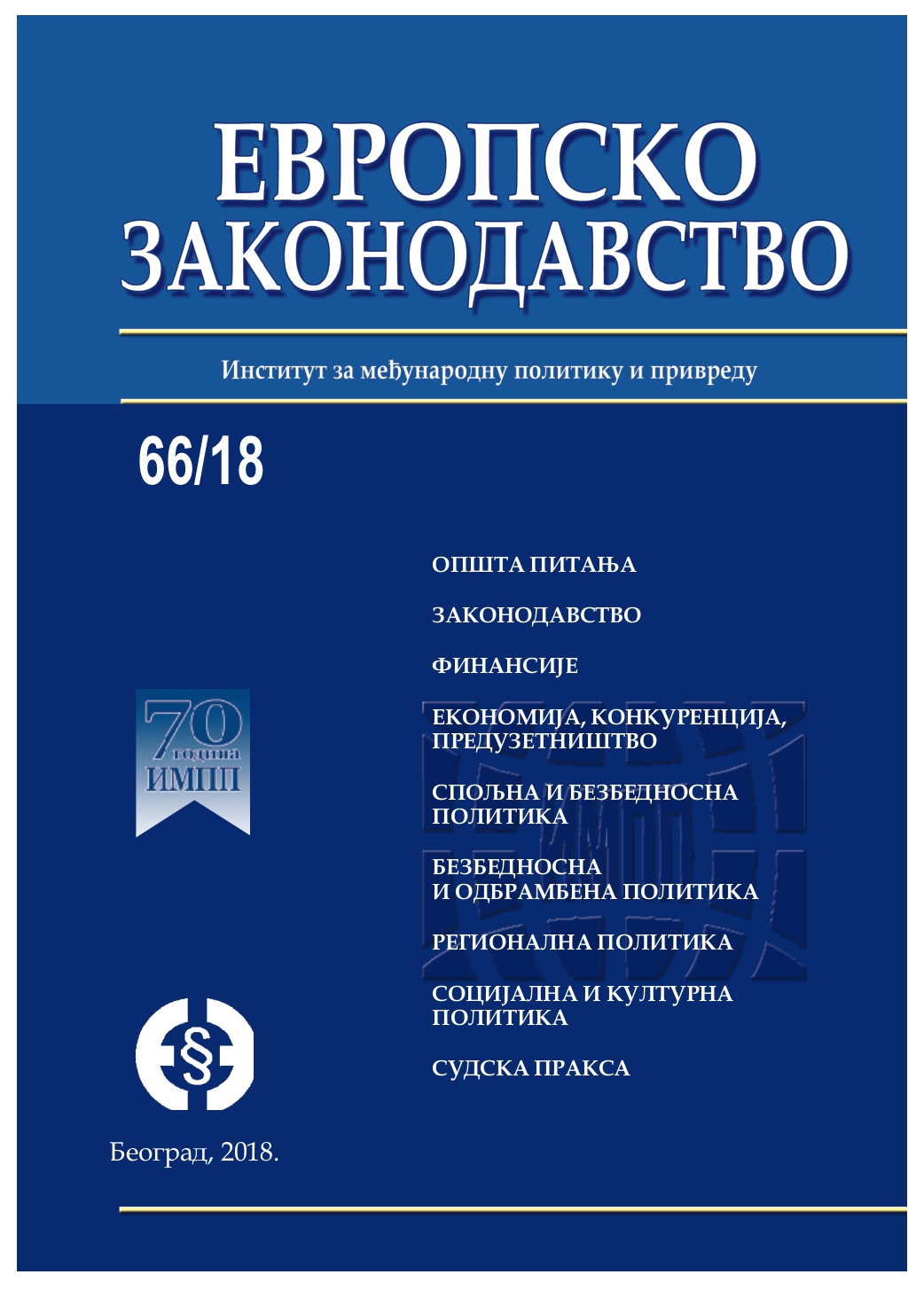Међународна трговинска арбитража и актуелно стање легислативе у Републици Србији
International trade association and the current state of the legislation in the Republic of Serbia
Author(s): Miladin PejakSubject(s): Economy, Law, Constitution, Jurisprudence
Published by: Институт за међународну политику и привреду
Keywords: arbitration;international trade arbitration;settlement of arbitration disputes;international conventions;Republic of Serbia
Summary/Abstract: International trade arbitrage has developed in the sphere of international trade relations. Today, it plays a very important role in the adjudication of disputes that accompany these relationships. The characteristic of the international law on commercial arbitration is that it represents a set of regulations that regulate the establishment and procedure of international trade arbitration, as well as the enactment, recognition and enforcement of an arbitration award. It is called international due to the international character of the disputes it regulates, as well as due to a large number of international legal sources that apply to that institution. Internationally accepted in the business world, international trade arbitration is regulated by numerous international conventions, national laws and regulations of institutional arbitration. International trade arbitration consists of two types of regulations – material and processive, which differ in their content and purposes. The first regulations appear as materially applicable law determined by the parties themselves or arbitrators and serve the arbitrators to decide on the substance of the arbitration dispute, while the procedural regulations serve to be the arbitration preceding itself or the recognition and enforcement of an arbitration decision. It is relevant to point out that international trade arbitration is based on the combination of internal(national) and international law. Therefore, the aim of international trade arbitration is to harmonize and divide resources of different origin in order to serve more efficiently the arbitral proceedings and more objective and faster-making verdicts. At first, the regulations governing national arbitration were the basic framework in which arbitration law was further developed, even the international type. The subsequent development of arbitration law, especially in the light of the broad adoption of multinational conventions, and the development of the idea that the harmonization of very different national rights is a necessary condition for the development of international arbitration, followed the reform of national legislation achieved in the last few decades. Their common feature is that the regulation of international arbitration is separated into an independent entity, principally separated from the regulation applicable to the settlement of disputes by domestic entities in disputes in which there is no international element. So is the Arbitration Law, which came into force in 2006 and completely regulated all issues of arbitration settlement of disputes in internal arbitration and disputes with a foreign element or international arbitration, modelled on the Model Law of UNCITRAL. By analyzing the current state of the legislation in the field of arbitration, it can be concluded that the arbitration law in the Republic of Serbia, whose fundamental reform was carried out by the Law on Arbitration in 2006, fully followed the contemporary trend in international arbitration law, both by content and by forms. Consequently, it can be said that in this way a precondition for popularization and affirmation of international trade arbitration has been created, which can contribute to the development of international trade relations.
Journal: Европско законодавство
- Issue Year: 2018
- Issue No: 66
- Page Range: 323-346
- Page Count: 24
- Language: Serbian

